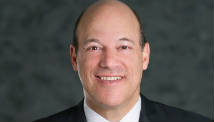
Getty Images
A majority of Americans favor such gun control measures as banning assault weapons and expanding background checks on those who buy guns and ammunition, with support for banning high-capacity ammunition magazines at a new high in ABC News/Washington Post polls.
With Vice President Joe Biden set to present recommendations that were prompted by the Newtown, Conn., school shootings last month, this latest poll shows overwhelming support for certain moves: Eighty-eight percent favor background checks on firearms buyers at gun shows; 76 percent support checks on buyers of ammunition and 71 percent back a new federal database that would track all gun sales.
For full results, charts and tables, CLICK HERE
Sixty-five percent also support banning high-capacity ammunition magazines, a high in three ABC/Post polls to test the idea since early 2011, and up by 6 percentage points since just after the Newtown shootings. Among other suggestions, 58 percent favor banning the sale of so-called assault weapons, 55 percent support the National Rifle Association’s call for armed guards in schools and 51 percent would ban semi-automatic handguns.
Notably, support for the most popular of these measures – expanded background checks, a gun database and banning high-capacity magazines – includes a majority of people who live in gun-owning households, a group that accounts for 44 percent of all adults in this country.
The intensity of support for all these proposals is also notable; “strong” support for each measure outstrips strong opposition, in most cases by overwhelming margins (save the two less-popular items, armed school guards and a semi-automatic handgun ban). For instance, 50 percent “strongly” favor banning assault weapons, twice the number who strongly opposes it. And 76 percent strongly support background checks at gun shows, while only 8 percent say they’re are strongly opposed.
Fifty-five percent in this poll, produced for ABC by Langer Research Associates, express worry about a mass shooting in their own communities, and 52 percent say the Newtown shootings have made them more likely to support some forms of gun control.
As noted, support for banning high-capacity magazines is at a new high in polling since 2011. But there’s no consistent change on other proposals. Support for background checks on gun show buyers is essentially the same as it was in the late 1990s; support for banning assault weapons is numerically up from its low in 2009 but still well below its levels in the mid- to late 1990s; and support for banning semi-automatic handguns has been essentially steady in recent years.
ACTION – Looking ahead to the possibility of legislative action, most Americans give the issue at least a high priority for the president and Congress to address, but not “the highest,” and more give greater priority to ”addressing gun violence” (68 percent) than specifically “enacting stricter gun control laws” (59 percent).
While they reach majorities, both of these are lower on the list than other top-shelf issues, including the economy, cutting federal spending, restructuring the tax system and slowing the rate of growth in spending on Social Security and Medicare.
The higher priority for “addressing gun violence” versus “enacting stricter gun control laws” (in a split-sample test) likely reflects some compunctions about whether gun control measures will work. The public, for instance, divides on whether stricter gun laws or armed guards in schools would be more effective (43-41 percent), and as many or more blame gun violence on inadequate treatment of the mentally ill, and on irresponsibility among gun owners, as on other causes.
FACTORS – Many factors receive broad blame for gun crimes. Leading the list, more than eight in 10 see inadequate treatment of the mentally ill, inadequate background checks and lack of individual responsibility by gun owners as contributors to gun violence, and more than half, in each case, say these contribute “a great deal” to the problem.
Sixty-nine to 73 percent also see the availability of semi-automatic handguns, high-capacity ammunition clips and assault weapons as contributors – yet as many say the same about the prevalence of violence in TV programs, movies and video games. The fewest numerically, 38 percent, believe violence in the media contributes “a great deal” to gun violence.
There are three items on which more people say the issue contributes to gun violence than favor legislative action: Sixty-nine percent see access to semi-automatic handguns as a contributor, versus 51 percent who favor banning such weapons; 73 percent say assault weapons are a contributor, versus 58 percent who favor banning those; and 70 percent see high-capacity magazines as a factor in gun violence, while slightly fewer, 65 percent, would ban them. The gaps apparently exist at least in part because support for action is lower among those who see these as contributing “somewhat” but not a great deal to gun violence – a group that includes more pro-gun individuals, such as people in gun-owning households, men and political conservatives.
GROUPS – There are striking differences among groups on some, but not all, gun control issues. Support for gun control measures generally is higher among women than men, with the gap peaking on a ban on semi-automatic handguns, supported by 60 percent of women versus 40 percent of men.
In addition to the expected partisan and ideological divisions, support for gun control also is higher in several cases among senior citizens vs. the youngest adults, among city dwellers vs. those in suburbs or rural areas, in Democratic-voting blue states vs. more-Republican red states, and in non-gun households vs. those in which someone owns a firearm. There also are regional divisions, with support for gun control typically highest in the Northeast and lowest in the South.
These differences, however, generally fade on the issues on which agreement is most broad – background checks, a gun database and banning high-capacity magazines.
Patterns are different in support for armed guards in schools; this idea is more popular with conservatives versus liberals (63 versus 44 percent), in red versus blue states (67 versus 49 percent) and among Republicans versus Democrats and independents (65 versus 52 percent). It also gets more support from parents with minor children, 62 percent, versus 51 percent among other adults. In the biggest gap, the proposal for armed school guards is nearly 30 points more popular with people who see the NRA’s leadership favorably than among those who see it unfavorably, 69 versus 40 percent.
There are other differences among groups that inform views on gun control. Women, for instance, are 13 points more apt than men to say the Newtown shootings have made them more likely to support some forms of gun control, and 16 points more likely to be worried that a mass shooting could occur in their own area. That worry is a prime factor in support for stricter gun laws.
THE NRA – While recent polls have found the NRA to be popular overall with a majority of Americans, this survey finds a less positive assessment of the association’s leadership - more see it unfavorably than favorably by an 8-point margin, 44 versus 36 percent, although many don’t know enough to say.
There’s a mixed result on the NRA’s influence on gun policy; on the one hand more, 38 percent, say it has too much influence versus too little (24 percent) or about the right amount (30 percent). At the same time, that makes a majority, netted, saying its influence is too little or about right.
The NRA’s leadership, naturally, has far more support among people in gun-owning versus non-gun-owning households – a 52 percent versus 22 percent favorable rating. Similarly, 49 percent in non-gun households say the NRA has too much influence over gun laws. In gun households 27 percent, agree.
METHODOLOGY – This ABC News/Washington Post poll was conducted by telephone Jan. 10-13, 2013, among a random national sample of 1,001 adults, including landline and cell-phone-only respondents. Results have a margin of sampling error of 3.5 points, including design effect. Partisan divisions are 33-24-37 percent, Democrats-Republicans-independents.
The survey was produced for ABC News by Langer Research Associates of New York, N.Y., with sampling, data collection and tabulation by Abt-SRBI of New York, N.Y.












